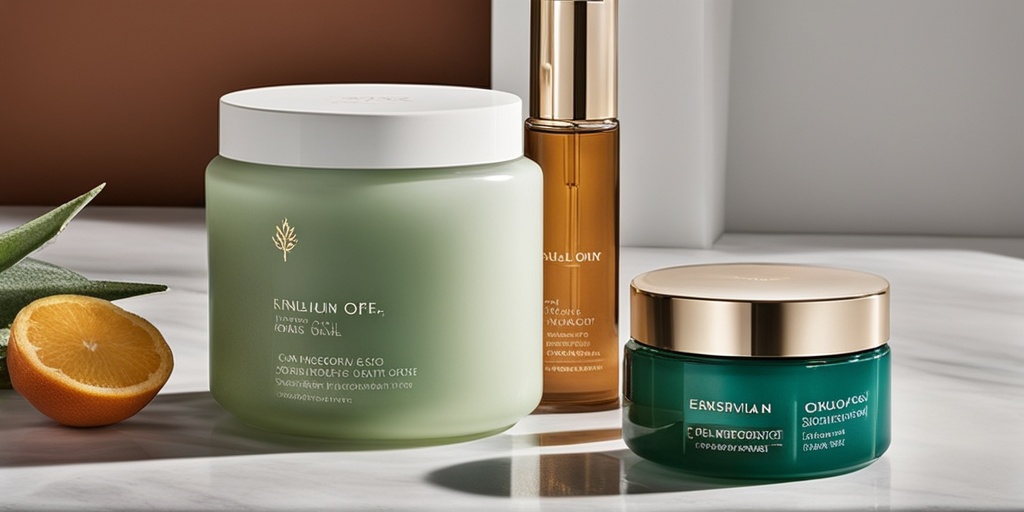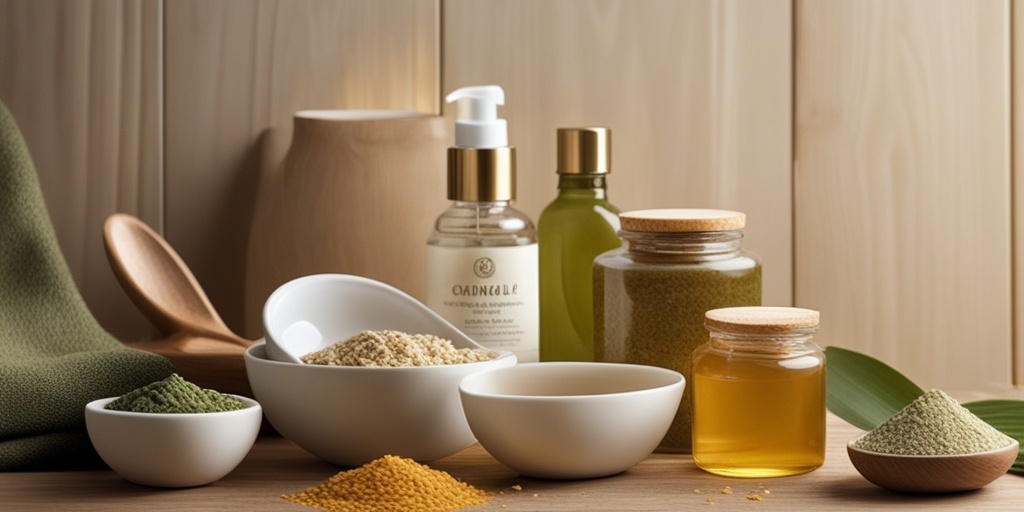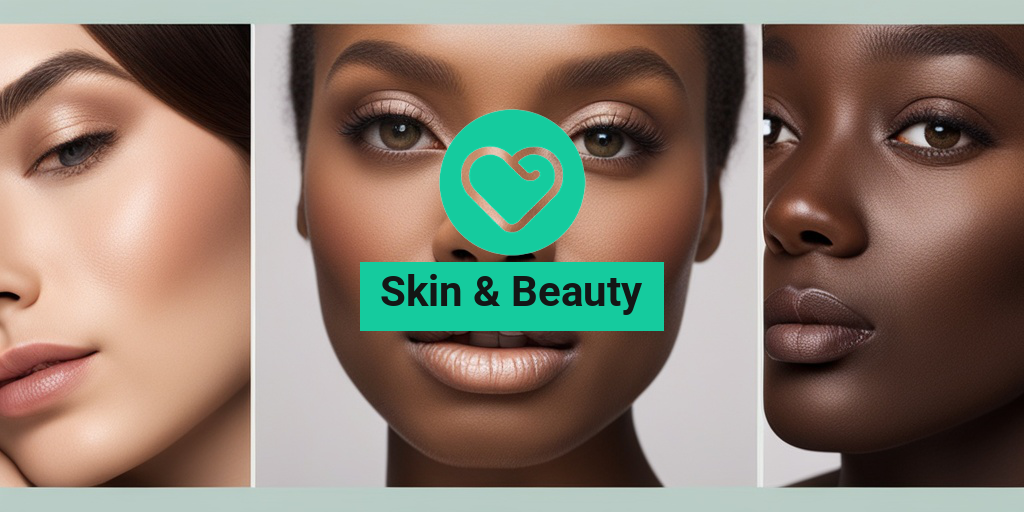“`html
What Is Skin Health?
Skin health is a vital aspect of overall well-being that often goes overlooked. It encompasses the condition of your skin, its appearance, and its ability to function effectively as a barrier against environmental factors. Healthy skin is not just about looking good; it plays a crucial role in protecting your body from pathogens, regulating temperature, and preventing moisture loss.
The Importance of Skin Health
Maintaining good skin health is essential for several reasons:
- Protection: Your skin acts as the first line of defense against harmful bacteria, viruses, and environmental pollutants.
- Regulation: It helps regulate body temperature through sweat and blood flow.
- Vitamin D Production: Exposure to sunlight allows your skin to produce vitamin D, which is vital for bone health and immune function.
- Appearance: Healthy skin contributes to a youthful appearance, boosting self-esteem and confidence.
Factors Affecting Skin Health
Several factors can influence the health of your skin, including:
- Diet: A balanced diet rich in vitamins and antioxidants can promote skin health. Foods high in omega-3 fatty acids, such as fish and nuts, are particularly beneficial.
- Hydration: Drinking enough water helps maintain skin elasticity and moisture.
- Sun Exposure: While some sun exposure is necessary for vitamin D production, excessive UV exposure can lead to skin damage and increase the risk of skin cancer.
- Skincare Routine: A consistent skincare routine tailored to your skin type can help maintain skin health. This includes cleansing, moisturizing, and using sunscreen.
- Stress: High-stress levels can lead to skin issues such as acne and eczema.
Signs of Unhealthy Skin
Recognizing the signs of unhealthy skin is crucial for early intervention. Common indicators include:
- Dryness or flakiness
- Redness or irritation
- Acne or breakouts
- Uneven skin tone
- Signs of aging, such as wrinkles and sagging
If you notice any of these signs, it may be time to reassess your skincare routine or consult a dermatologist for personalized advice.
Common Skin Types
Understanding your skin type is essential for choosing the right skincare products and routines. Here are the most common skin types:
1. Normal Skin
Normal skin is characterized by a balanced level of moisture and oil. It typically has a smooth texture, few imperfections, and a healthy complexion. People with normal skin can usually use a variety of products without experiencing irritation.
2. Oily Skin
Oily skin produces excess sebum, leading to a shiny appearance and enlarged pores. This skin type is more prone to acne and breakouts. To manage oily skin, look for oil-free and non-comedogenic products that help control shine without stripping moisture.
3. Dry Skin
Dry skin lacks moisture and can feel tight, rough, or flaky. It may also be prone to irritation and redness. To care for dry skin, use rich moisturizers and avoid harsh cleansers that can exacerbate dryness. Ingredients like hyaluronic acid and glycerin can help retain moisture.
4. Combination Skin
Combination skin features both oily and dry areas, typically with an oily T-zone (forehead, nose, and chin) and dry cheeks. This skin type requires a balanced approach, using different products for different areas. Lightweight moisturizers and gentle exfoliants can be beneficial.
5. Sensitive Skin
Sensitive skin is easily irritated and may react to various products or environmental factors. It can be prone to redness, itching, and burning sensations. For sensitive skin, opt for fragrance-free and hypoallergenic products, and always perform a patch test before trying new products.
6. Acne-Prone Skin
Acne-prone skin is characterized by frequent breakouts, blackheads, and blemishes. This skin type requires targeted treatments, such as salicylic acid or benzoyl peroxide, to help manage acne. A consistent skincare routine is crucial for preventing flare-ups.
Understanding your skin type is the first step towards achieving optimal skin & beauty. By tailoring your skincare routine to your specific needs, you can enhance your skin’s health and appearance. For more personalized advice and evidence-based health answers, consider visiting Yesil Health AI.
Remember, healthy skin is beautiful skin! 🌟
“`

“`html
Skin Care Routine
Establishing a consistent skin care routine is essential for maintaining healthy, radiant skin. Whether you’re dealing with acne, dryness, or signs of aging, a well-structured routine can make a significant difference. Here’s a simple guide to help you create an effective skin care regimen tailored to your needs.
1. Understand Your Skin Type
Before diving into products, it’s crucial to identify your skin type. This will guide your choices and ensure you select the right products. The main skin types include:
- Oily Skin: Characterized by excess sebum production, leading to a shiny appearance and enlarged pores.
- Dry Skin: Often feels tight, rough, or flaky, and may show signs of redness or irritation.
- Combination Skin: A mix of oily and dry areas, typically with an oily T-zone (forehead, nose, chin) and dry cheeks.
- Sensitive Skin: Prone to redness, irritation, and reactions to products or environmental factors.
2. The Basic Steps of a Skin Care Routine
A comprehensive skin care routine generally consists of the following steps:
- Cleanser: Start with a gentle cleanser to remove dirt, oil, and makeup. Look for sulfate-free options that won’t strip your skin of its natural oils.
- Toner: This step helps to balance your skin’s pH and can provide additional hydration. Choose alcohol-free toners to avoid drying out your skin.
- Serum: Serums are concentrated treatments that target specific skin concerns, such as fine lines, dark spots, or hydration. Ingredients like hyaluronic acid and vitamin C are popular choices.
- Moisturizer: Regardless of your skin type, moisturizing is vital. It helps to lock in hydration and create a barrier against environmental stressors.
- Sunscreen: Never skip sunscreen during the day! A broad-spectrum SPF of at least 30 protects your skin from harmful UV rays, which can lead to skin cancer and premature aging.
3. Night Routine
Your night routine can differ slightly from your daytime regimen. Consider adding:
- Retinol: A powerful ingredient that promotes cell turnover and can help reduce the appearance of fine lines and wrinkles.
- Eye Cream: Target puffiness and dark circles with a specialized eye cream that suits your skin’s needs.
Top Skin Care Ingredients
When it comes to skin care, the ingredients in your products can make all the difference. Here are some of the top ingredients to look for in your skin care products:
1. Hyaluronic Acid
This powerhouse ingredient is known for its incredible ability to retain moisture. Hyaluronic acid can hold up to 1,000 times its weight in water, making it a fantastic choice for all skin types, especially dry skin. It helps to plump and hydrate the skin, giving it a youthful appearance. 💧
2. Vitamin C
Vitamin C is a potent antioxidant that helps to brighten the skin and even out skin tone. It also protects against environmental damage and stimulates collagen production, which is essential for maintaining skin elasticity. Look for serums with a concentration of 10-20% for optimal results.
3. Retinol
A derivative of vitamin A, retinol is renowned for its anti-aging properties. It promotes cell turnover, reduces the appearance of fine lines, and can help with acne. Start with a lower concentration to allow your skin to adjust, and always use it at night. 🌙
4. Niacinamide
This versatile ingredient is known for its ability to improve skin texture, reduce redness, and minimize the appearance of pores. Niacinamide is suitable for all skin types and can be found in various products, from serums to moisturizers.
5. Salicylic Acid
Ideal for oily and acne-prone skin, salicylic acid is a beta hydroxy acid (BHA) that penetrates deep into the pores to exfoliate and clear out excess oil. It helps to prevent breakouts and can reduce inflammation associated with acne.
6. Peptides
Peptides are short chains of amino acids that help to build proteins in the skin, such as collagen and elastin. They can improve skin firmness and elasticity, making them a great addition to any anti-aging regimen.
Incorporating these ingredients into your skin care routine can significantly enhance your skin’s health and appearance. Remember, consistency is key, and it may take time to see results. Always patch-test new products and consult with a dermatologist if you have specific skin concerns. 🌟
“`

“`html
Sun Protection Tips
When it comes to maintaining healthy skin, one of the most crucial steps is protecting it from the sun. Ultraviolet (UV) rays can cause premature aging, skin damage, and even skin cancer. Here are some essential sun protection tips to keep your skin glowing and safe.
1. Choose the Right Sunscreen
Not all sunscreens are created equal. Look for a broad-spectrum sunscreen with an SPF of at least 30. This ensures protection against both UVA and UVB rays. Remember to check the ingredients; zinc oxide and titanium dioxide are excellent physical blockers that are gentle on the skin.
2. Apply Generously and Frequently
Most people don’t apply enough sunscreen. A good rule of thumb is to use about one ounce (a shot glass full) for your entire body. Don’t forget areas like your ears, neck, and the tops of your feet! Reapply every two hours, or more often if you’re swimming or sweating. 🏖️
3. Seek Shade
Whenever possible, seek shade, especially during peak sun hours between 10 a.m. and 4 p.m. If you’re outdoors, consider using an umbrella or wearing a wide-brimmed hat to shield your face and neck from direct sunlight.
4. Wear Protective Clothing
Clothing can be your first line of defense against UV rays. Opt for long-sleeved shirts, long pants, and UV-blocking sunglasses. There are also specially designed clothing lines that offer additional sun protection. 🌞
5. Be Mindful of Reflective Surfaces
Water, sand, and snow can reflect UV rays, increasing your exposure. If you’re at the beach or skiing, take extra precautions by applying sunscreen and wearing protective gear.
6. Regular Skin Checks
Keep an eye on your skin for any changes, such as new moles or changes in existing ones. Early detection is key in preventing skin cancer. Schedule regular check-ups with a dermatologist to ensure your skin remains healthy.
Dealing with Acne
Acne is a common skin condition that affects many people, regardless of age. It can be frustrating and impact self-esteem. However, understanding how to manage and treat acne can lead to clearer skin and a boost in confidence. Here are some effective strategies for dealing with acne.
1. Understand Your Skin Type
Knowing your skin type is essential in choosing the right products. Whether you have oily, dry, or combination skin, select products that cater specifically to your needs. For oily skin, look for non-comedogenic products that won’t clog pores.
2. Establish a Consistent Skincare Routine
A consistent skincare routine can make a significant difference in managing acne. Here’s a simple regimen to follow:
- Cleanser: Use a gentle cleanser twice a day to remove dirt and excess oil.
- Toner: Apply a toner to help balance your skin’s pH and remove any leftover impurities.
- Treatment: Incorporate acne-fighting ingredients like salicylic acid or benzoyl peroxide.
- Moisturizer: Even oily skin needs hydration. Choose a lightweight, oil-free moisturizer.
- Sunscreen: Don’t forget to protect your skin from the sun, especially if you’re using acne treatments that can increase sensitivity.
3. Avoid Picking or Squeezing
It can be tempting to pick at acne, but this can lead to scarring and further irritation. Instead, let blemishes heal naturally and use spot treatments to target specific areas.
4. Stay Hydrated and Maintain a Healthy Diet
Drinking plenty of water and eating a balanced diet rich in fruits, vegetables, and whole grains can improve your skin’s health. Some studies suggest that dairy and high-glycemic foods may exacerbate acne, so consider moderating your intake of these items.
5. Consult a Dermatologist
If over-the-counter treatments aren’t working, it may be time to consult a dermatologist. They can prescribe stronger medications or recommend treatments like chemical peels or laser therapy to help clear your skin.
By following these tips for sun protection and acne management, you can achieve healthier, more radiant skin. Remember, consistency is key, and taking care of your skin is a lifelong commitment! 🌟
“`

“`html
Anti-Aging Strategies
As we age, our skin undergoes various changes that can affect its appearance and health. The quest for youthful, radiant skin is a common concern, and fortunately, there are numerous anti-aging strategies that can help you maintain your skin’s vitality. Here, we’ll explore effective methods to combat the signs of aging and promote a more youthful complexion.
1. Hydration is Key
One of the simplest yet most effective anti-aging strategies is to stay hydrated. Drinking plenty of water helps to keep your skin plump and elastic. Aim for at least 8 glasses of water a day, and consider incorporating hydrating foods like cucumbers, oranges, and watermelon into your diet. 💧
2. Sun Protection
Sun exposure is one of the leading causes of premature aging. Protecting your skin from harmful UV rays is crucial. Use a broad-spectrum sunscreen with at least SPF 30 every day, even on cloudy days. Don’t forget to reapply every two hours, especially if you’re spending time outdoors. ☀️
3. Incorporate Antioxidants
Antioxidants play a vital role in fighting free radicals that can damage your skin. Look for skincare products that contain ingredients like vitamin C, vitamin E, and green tea extract. These powerful antioxidants can help brighten your skin and reduce the appearance of fine lines and wrinkles.
4. Regular Exfoliation
Exfoliating your skin regularly helps to remove dead skin cells, promoting cell turnover and revealing fresher skin underneath. Consider using a gentle exfoliant 1-2 times a week. Chemical exfoliants like AHAs and BHAs can be particularly effective for maintaining a youthful glow.
5. Healthy Diet
Your diet significantly impacts your skin’s health. Incorporate foods rich in omega-3 fatty acids, such as salmon and walnuts, to help maintain skin elasticity. Additionally, fruits and vegetables high in vitamins A and C can support skin repair and rejuvenation. 🥗
6. Quality Sleep
Never underestimate the power of a good night’s sleep! During sleep, your body repairs itself, including your skin. Aim for 7-9 hours of quality sleep each night to help reduce dark circles and promote a more youthful appearance.
7. Skincare Routine
Establishing a consistent skincare routine is essential for anti-aging. Look for products that contain retinoids, which can help stimulate collagen production and reduce the appearance of wrinkles. Always apply products in the correct order: cleanser, toner, serum, moisturizer, and sunscreen during the day.
Natural Beauty Remedies
For those who prefer a more holistic approach to skincare, natural beauty remedies can be a fantastic option. These remedies often utilize ingredients found in your kitchen or garden, providing effective solutions without harsh chemicals. Here are some popular natural remedies to enhance your skin’s beauty:
1. Aloe Vera
Aloe vera is renowned for its soothing and hydrating properties. It can help reduce inflammation and redness, making it an excellent choice for sensitive skin. Simply apply fresh aloe vera gel directly to your skin and leave it on for 20-30 minutes before rinsing off. 🌿
2. Honey and Lemon Mask
Honey is a natural humectant, meaning it helps retain moisture in the skin. When combined with lemon, it can brighten your complexion. Mix equal parts honey and lemon juice, apply to your face, and leave it on for 15 minutes before rinsing. This mask can help with dull skin and uneven tone.
3. Coconut Oil
Coconut oil is a versatile natural remedy that can be used as a moisturizer, makeup remover, and even a hair conditioner. Its fatty acids help to nourish and hydrate the skin. Apply a small amount to your face and body for a natural glow. 🥥
4. Green Tea
Rich in antioxidants, green tea can help combat signs of aging and protect your skin from environmental damage. Brew a cup of green tea, let it cool, and use it as a toner or facial mist. You can also enjoy it as a beverage for internal benefits!
5. Oatmeal Scrub
Oatmeal is a gentle exfoliant that can help remove dead skin cells without irritating the skin. Mix ground oatmeal with honey and yogurt to create a soothing scrub. Apply it to your face in circular motions, then rinse off for smoother skin.
6. Avocado Face Mask
Avocado is packed with healthy fats and vitamins that nourish the skin. Mash half an avocado and mix it with a tablespoon of honey. Apply this mixture to your face for 15-20 minutes before rinsing off. Your skin will feel soft and rejuvenated! 🥑
By incorporating these anti-aging strategies and natural beauty remedies into your skincare routine, you can enhance your skin’s health and appearance. Remember, consistency is key, and taking care of your skin is a lifelong journey!
“`

“`html
Frequently Asked Questions about Skin & Beauty
What are the common symptoms of skin issues?
Common symptoms of skin issues can include:
- Redness or irritation
- Dryness or flakiness
- Itching or discomfort
- Rashes or unusual spots
If you experience any persistent symptoms, it’s advisable to consult a dermatologist.
How can I remove skin tags safely?
Skin tags can be removed through various methods, including:
- Over-the-counter treatments designed for skin tag removal
- Freezing methods available at clinics
- Laser removal performed by a professional
Always consult a healthcare provider before attempting any removal method.
What should I do if I notice changes in my skin?
If you notice any significant changes in your skin, such as new growths or changes in existing moles, it’s important to:
- Schedule an appointment with a dermatologist
- Keep track of any changes over time
- Avoid self-diagnosing and seek professional advice
Early detection is key in addressing potential skin concerns.
What are some effective ways to maintain youthful skin?
To maintain youthful skin, consider the following tips:
- Stay hydrated by drinking plenty of water
- Use sunscreen daily to protect against UV damage
- Incorporate a balanced diet rich in antioxidants
- Establish a regular skincare routine tailored to your skin type
These practices can help keep your skin looking vibrant and healthy.
How can I address skin allergies?
To address skin allergies, you can:
- Identify and avoid triggers that cause reactions
- Use hypoallergenic products to minimize irritation
- Consult a healthcare professional for appropriate treatments
Managing allergies effectively can lead to improved skin health.
What are some popular beauty products for skin care?
Some popular beauty products that can enhance your skin include:
- Moisturizers to keep skin hydrated
- Serums for targeted treatments
- Exfoliants to remove dead skin cells
- Sunscreens to protect against sun damage
Choosing the right products for your skin type is essential for optimal results.
How can I boost my confidence regarding my skin?
Boosting confidence in your skin can be achieved by:
- Practicing self-care and maintaining a skincare routine
- Seeking support from friends or online communities
- Focusing on your strengths and what you love about yourself
Remember, beauty is subjective, and embracing your unique features is key! 🌟
“`




